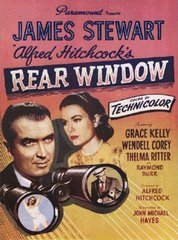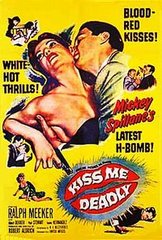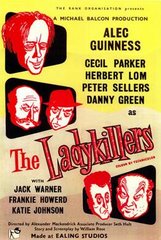I've noticed over the past couple of years (I dunno, maybe it's been happening longer and I just never noticed) is that mainstream critics -- newspaper critics, magazine critics, TV critics, many online critics -- all tend to adopt a "script" about certain movies and then proceed to view these movies only through that script. For The Passion of the Christ it was the possible anti-Semitism of the film; for Brokeback Mountain it was the gay romance angle and how the film was breaking down prejudices against Gay and Lesbian people in America; now for Borat it's the angle that the movie is some great social commentary revealing the "hidden prejudices in America." The angle, in such cases, takes over the conversation about the movie to the point that nearly every major review or commentary approaches the film from that angle and the film gets defined as being "about" that before the audience has even seen the film. This, of course, isn't limited to film criticism and movie reviews -- the media has a tendency to approach a story in only one way and that one way is the one that dominates our national conversation about the story. But I'm getting kind of annoyed by this in film criticism since film is what I'm most interested in and I hate how the conversation gets defined before the audience has even had a chance to see the film and decide for itself.
Borat is the latest example of this, where everyone has been told for months that the film is all about exposing the prejudices of "average" Americans so people go into the movie expecting it to be about this, and since the movie does have a few scenes where Americans act like bigoted, disgusting jerks, people think they've seen some ground-breaking work of social satire.
Am I being too condescending toward the audience? Am I giving critics too much credit and the audience not enough? Maybe. I would hope that people are able to see films for what they are and not have their opinions dictated to them by the media or so-called experts. Maybe I'm getting hot and bothered for nothing and most people in the audiences for Borat recognize that they aren't laughing at the frat boys' stupid remarks because, frankly, their gross remarks aren't funny, but that they're laughing at Borat and his silly, over-the-top comments, and his zany slapstick. For the most part, the comedy in Borat doesn't come from the awful remarks made by a few frat boys and rednecks; the comedy comes from Borat himself. But the way the media hype surrounding the movie would have it, you'd think you were watching a two-hour masterpiece of groundbreaking social satire. I hate the way the conversation gets started about a film and everyone just echoes and parrots the same few things that the mainstream critics have all glommed onto.
I am encouraged by the Internet, of course, and the fact that more people have a voice now and can enter the conversation instead of just being suffocated by the conversations of others (i.e.: "professionals"). To take Borat as an example again, there's the commentary by Christopher Hitchens which I think makes some good points (and of course, some points I happen to agree with, see my review below), and then there's Jim Emerson's response, which also makes some excellent points, and analyzes the film in its relation to traditional cinematic comedy (as opposed to its status as social commentary), something I'm afraid I've found very little of in the mainstream reviews that welcomed the movie into theaters. Hitchens and Emerson are, of course, both part of the mainstream themselves, in a way that I, the humble nobody blogger, am not. But they're engaging the film in a way that is based on actually thinking about it as individuals and not just parroting a lot of movie reviewer groupthink. That's what's refreshing, and I hope the more I explore this whole film blogger thing the more I'll encounter this kind of individualism in criticism. At this point, I'm pretty much sick to death of the professional reviewer scene, because it seems like there's always a specific "line" on a movie -- it's this, it's that, it's got this controversy surrounding it, it's got that scandal accompanying it -- and whatever the line is the reviewer can't help but reduce the film to that one thing. I suspect what people like Hitchens and Jonah Goldberg are reacting to (I can't comment on David Brooks, whom Emerson mentions, because I don't subscribe to the New York Times online) is not so much the movie Borat itself, but the national conversation that seems to have arisen around it. The "line" on a film has already been written, and so that's what the movie "is," whether we like it or not.
Sorry for the rant, but I say not.
Subscribe to:
Post Comments (Atom)



















No comments:
Post a Comment